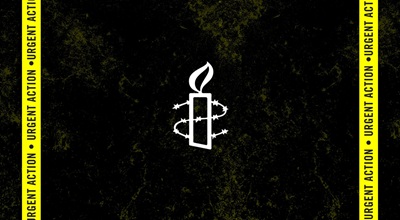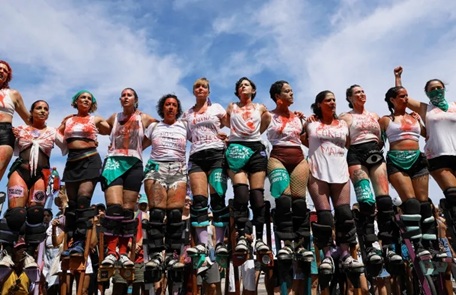Dear Amnesty activists and supporters,
HAPPY NEW YEAR from the Europe Team. Here is our latest newsletter with updates and actions.
European Parliament votes to expand access to abortion in historic ballot
 The vote could pave the way for funding thousands of European women who travel every year to another EU country to access abortion care.
The vote could pave the way for funding thousands of European women who travel every year to another EU country to access abortion care.
Read more here:
https://www.politico.eu/article/europe-votes-to-expand-abortion-access-in-historic- vote/
Poland
European Court of Human Rights rules on violation of rights due to near-total abortion ban
 The European Court of Human Rights (ECHR) has ruled that Poland violated the rights of a pregnant woman who had to travel abroad to obtain an abortion after her foetus was diagnosed with a birth defect. It is the second time that the court has issued a judgment against Poland relating to its near-total abortion ban.
The European Court of Human Rights (ECHR) has ruled that Poland violated the rights of a pregnant woman who had to travel abroad to obtain an abortion after her foetus was diagnosed with a birth defect. It is the second time that the court has issued a judgment against Poland relating to its near-total abortion ban.
Read more – https://notesfrompoland.com/2025/11/13/european-court-rules-poland- violated-rights-of-woman-who-traveled-abroad-for-abortion/
Documentary on intergenerational trauma, memory, and Poland’s fight for women’s bodily autonomy.

We are inviting you support a documentary on intergenerational trauma, memory, and Poland’s fight for women’s bodily autonomy.
The documentary brings together family members from different generations, activists and experts to explore how bodily autonomy has become tied to ideas of nationhood, motherhood and survival.
The aim is to make a film that feels honest and grounded rather than sensational, made by our CC for Central Europe Lucja, who wants audiences to understand Poland’s current abortion debate as part of a longer story about memory, control and survival. This will reflect on how inherited trauma can continue to shape political choices.
Support and read more here:
https://www.crowdfunder.co.uk/p/intergenerational-trauma-and-abortion- in-poland-do#
The Crowdfunder is only open until 3rd Feb 2026.
If you’d like to help fundraise, please contact Lucja.jastrzebska@amnesty.org.uk to facilitate speaking events on abortion rights in Poland.
Once the film is completed, there will be opportunities for screening available.
Thank you for your ongoing support! [Read more…]

 Amnesty released two Urgent Actions relating to Colombia in December. The first regarding serious risks to the life, safety, and security of the peasant communities of El Porvenir and Matarratón; the second relating to serious attacks on members of the Inter-Church Commission for Justice and Peace while engaging in human rights defence activities in Southwest Colombia. Please take action
Amnesty released two Urgent Actions relating to Colombia in December. The first regarding serious risks to the life, safety, and security of the peasant communities of El Porvenir and Matarratón; the second relating to serious attacks on members of the Inter-Church Commission for Justice and Peace while engaging in human rights defence activities in Southwest Colombia. Please take action 